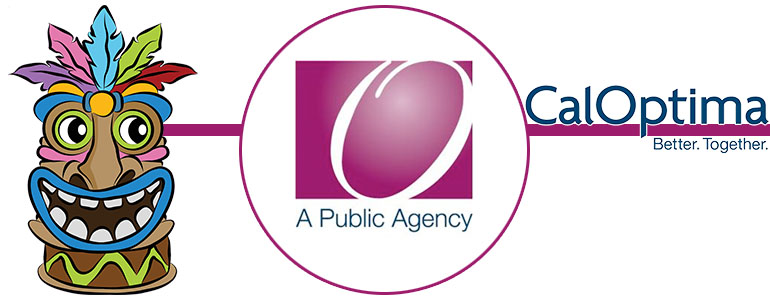
Reflecting CalOptima Health’s commitment to Orange County’s vulnerable population of people experiencing homelessness, the Board of Directors approved awarding $29.9 million in grants to 29 organizations, including its first-ever funds for permanent supportive housing. Eight community partners will receive a total of $21 million for the acquisition, construction and upgrades of more than 400 total housing units.
CalOptima Health’s grants are tied to participation in the Department of Health Care Services’ Housing and Homelessness Incentive Program (HHIP), which allows the agency to fund permanent supportive housing. HHIP aims to prevent and address housing insecurity for Medi-Cal members by ensuring those experiencing homelessness have a clear path into housing and can access the services needed to remain housed. In addition to funding major projects, grants were also awarded for expanded community-based services that will strengthen Orange County’s ability to respond to the continuing homeless crisis.
“These grants will deliver life-changing resources for many individuals and families in Orange County who have struggled to navigate the complex system of homeless services and housing,” said Michael Hunn, CEO of CalOptima Health. “Simply put, housing is health. CalOptima Health is honored that $21 million of this funding will go toward permanent supportive housing. By providing stability, permanent housing becomes the very foundation for accessing medical and behavioral health services.”
The Salvation Army Orange County was awarded the single largest grant at $4.1 million. “Today is a momentous day,” said Major Nesan Kistan, CEO of the Tustin-based organization. “Our partnership with CalOptima Health makes it possible for The Salvation Army to continue to bring hope to thousands of unhoused individuals in Orange County, some of whom have been suffering from chronic homelessness for more than 15 years. This generous grant will allow us to complete the construction of 72 units of permanent supportive housing and accelerate the completion of our brand-new Wellness Center at the Center of Hope. The Wellness Center will care for and serve thousands of individuals experiencing homelessness from across our community for many years to come. We thank CalOptima Health for their commitment and leadership in serving the unhoused in Orange County.”
Midway City-based grantee American Family Housing will build a 111-unit residential community for eligible households experiencing homelessness. “These funds position us to create the infrastructure for a health care system that looks at the whole person and takes into consideration the real-life experience of people who have experienced homelessness in Orange County,” said Milo Peinemann, CEO of American Family Housing. “This landmark investment supports a more balanced approach to health care for those who are chronically homeless. People with serious health needs make up the vast majority of the population of people who experience homelessness. We can better tackle homelessness if we address how our health care system handles their social determinants of health.”
Grantees in two other categories — capacity building and equity — received a total of $8.9 million. Capacity building grants will help organizations expand the availability of their housing navigation services, such as by adding staff and other resources. Equity grants are designed to enhance programs delivering homeless services for underrepresented populations, such as children, older adults, transgender individuals and certain ethnic groups.
Latino Health Access received a $500,000 capacity building grant. Chief Program Officer Nancy Mejia, MPH, MSW, of the Santa Ana organization said: “This grant will expand our Health and Housing Promotor program to provide an additional 300 housing navigation support services to OC residents to remain in and/or connect to permanent housing. We will also expand our capacity to identify, inform and refer community members facing housing insecurity by building the capacity of Latino Health Access promotores (community health workers).”
Laguna Beach-based Friendship Shelter received capacity building and capital grants. Executive Director Dawn Price concludes: “CalOptima Health is leading the way in our state in assessing our system’s needs and swiftly moving these funds into the community. In return, we are eager to accept the responsibility to ensure that these funds go to work immediately to have the intended impact.”
Furthermore, CalOptima Health intends to award additional grant funding for permanent supportive housing later this year, based on future HHIP incentives received from the state. “We are just getting started making the kind of transformational changes needed to reach and uplift our community’s most vulnerable,” said Kelly Bruno-Nelson, Executive Director of Medi-Cal/CalAIM, who is leading the team spearheading efforts in support of whole person health.
